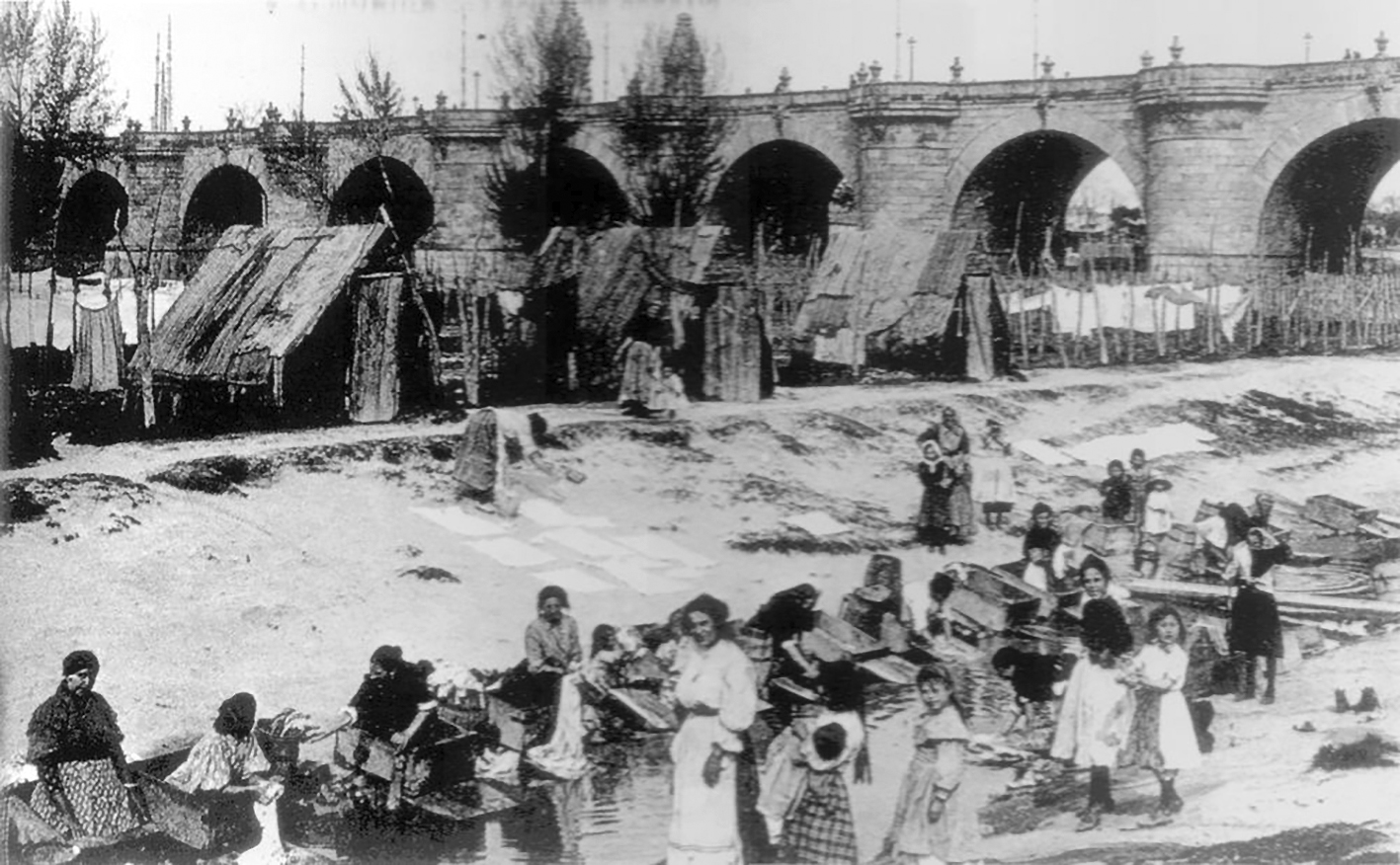
Published 2023-11-27
Keywords
- gender,
- care,
- feminism,
- washerwomen,
- water
How to Cite
Copyright (c) 2023 Serafina Amoroso, Fermina Garrido López

This work is licensed under a Creative Commons Attribution 4.0 International License.
Abstract
The centrality of care work and its enhancement, exemplified, within the framework of this text, by the special relationship of women with water and with the 'domestic' tasks related to it (such as washing clothes), is a highly topical issue, since the guidelines of the 2030 Agenda aim to achieve more inclusive, safe, resilient and sustainable human settlements. This article intends to reflect, from a gender perspective, on the spatio-temporal consequences of the expulsion process, from the public and collective sphere, of certain activities historically carried out by women, which have been relegated to the private sphere of the home. After briefly analyzing some case studies that represent a clear reversal of this trend, within the framework of a round trip from public to private spheres that passes through ‘sharing’, the urgent need to find a space-time, suitable for these activities, is argued. To this end, on the one hand, it is necessary to promote the visibility of the historical memory of the laundries in an active and effective way, through mapping actions that go beyond the anecdotal framework of certain musealization practices that aim at the mere preservation of an inanimate object; on the other, the incorporation of new design criteria into urban and collective housing policies, which facilitate a more equitable and sustainable distribution of care tasks, is a priority objective.
